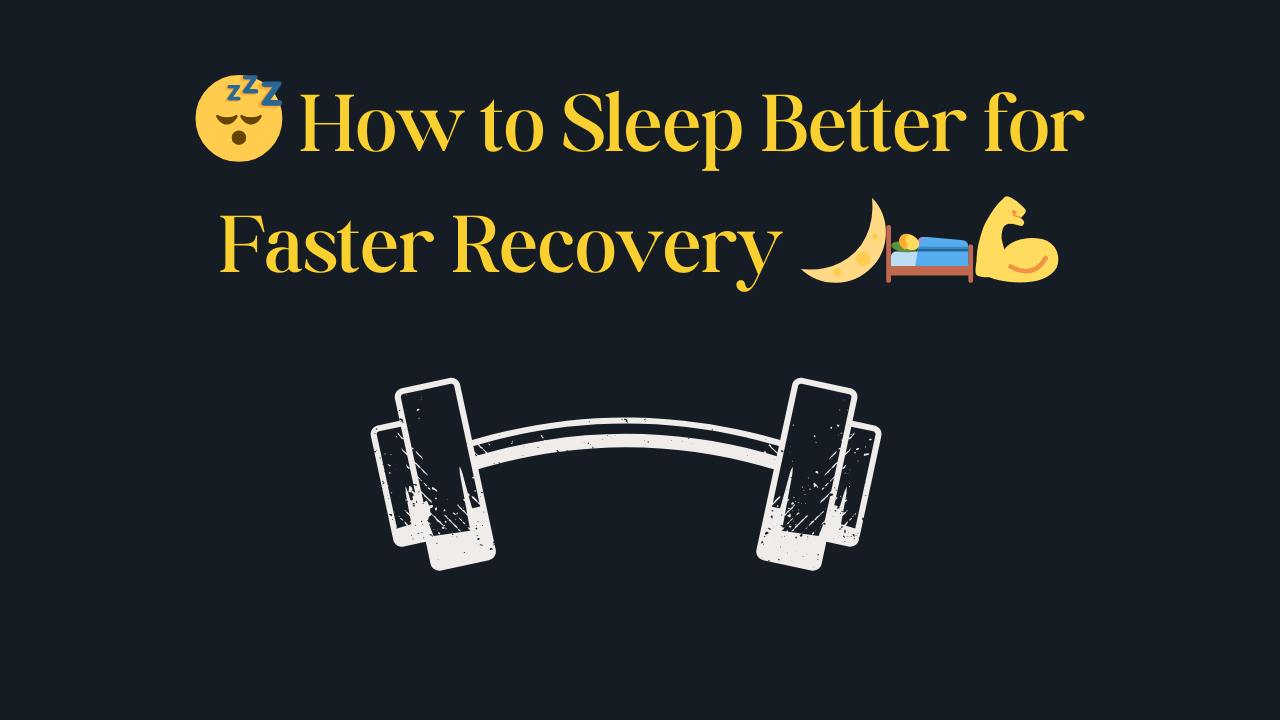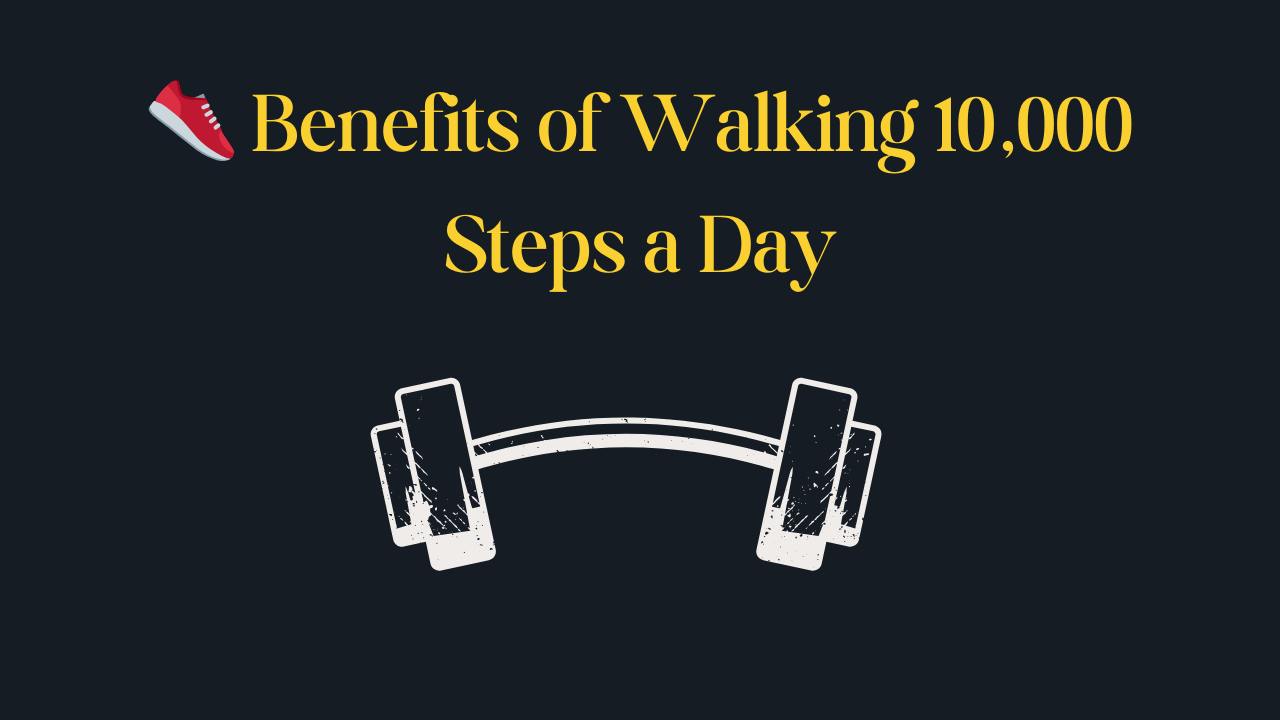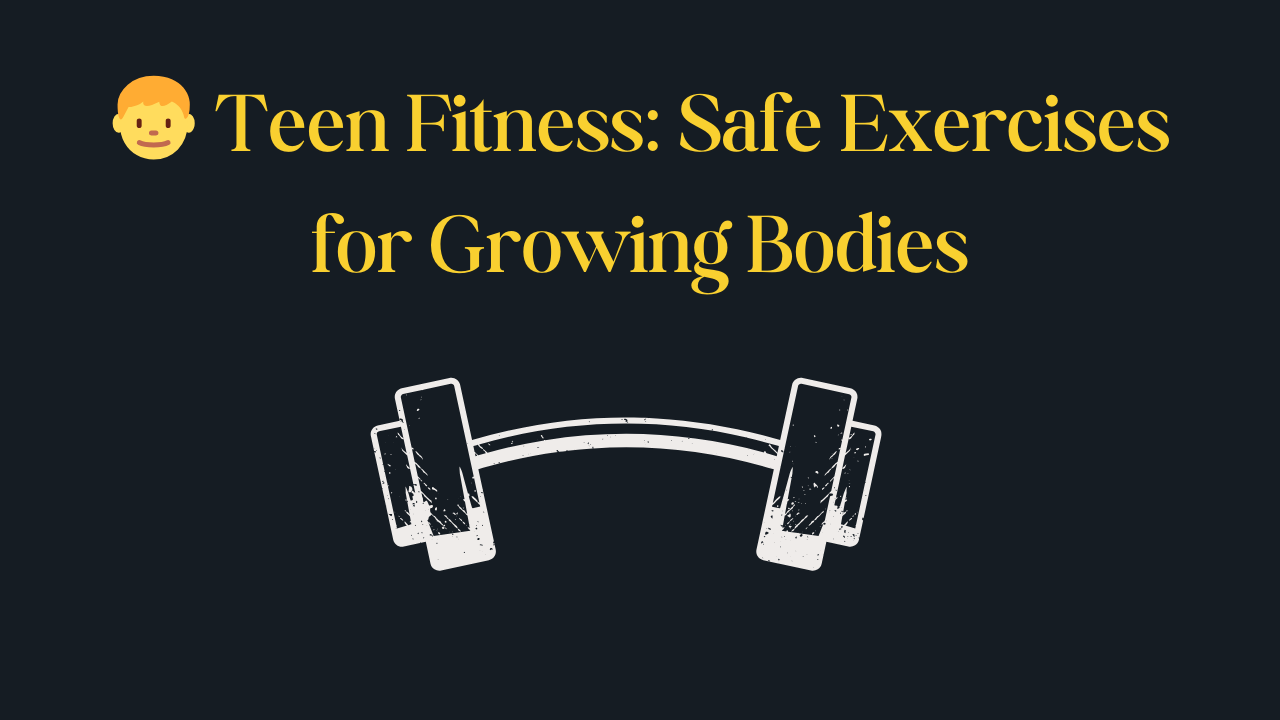😴 How to Sleep Better for Faster Recovery 🌙🛌💪
2025-04-03 00:09:06.789 +0000 UTC

😴 How to Sleep Better for Faster Recovery
You can lift all the weights, run all the miles, and eat all the protein—but if you’re not sleeping well, you’re shortchanging your results. 😩
Sleep is the secret weapon of every successful athlete and fitness enthusiast. It’s where your muscles rebuild, your hormones reset, and your body and brain recover. 🛌💪
This guide breaks down how to sleep better for faster recovery so you wake up stronger, more energized, and ready to crush your next workout. 🚀
🌙 Why Sleep Is Critical for Recovery
- 💪 Muscle Repair: Growth hormone is released during deep sleep, repairing muscle tissues
- 🧠 Mental Focus: Poor sleep = slower reaction time, lower focus, and more fatigue
- ⚖️ Hormonal Balance: Sleep regulates hunger hormones (ghrelin/leptin), cortisol, and testosterone
- 🔥 Reduces Inflammation: Helps your body recover from training stress
Miss sleep, and you miss progress. 🧠⛔
🕰️ How Much Sleep Do You Really Need?
It depends on your age, training load, and lifestyle, but general guidelines are:
- 🔹 7–9 hours for adults
- 🔹 8–10 hours for athletes or heavy lifters
- 🔹 6 hours or less = recovery deficit risk ⚠️
💡 Track how you feel (energy, mood, soreness) instead of chasing a perfect number.
📆 Create a Consistent Sleep Routine
Start by setting a regular sleep-wake schedule—even on weekends. ⏰
- 📴 Set a nightly wind-down alarm
- 🌙 Stick to the same bedtime and wake-up time
- 🔄 Let your body sync with a healthy rhythm
Your internal clock (circadian rhythm) LOVES consistency. 🔁
🧘♀️ Best Wind-Down Activities Before Bed
To fall asleep faster and sleep deeper, try one or more of these activities 30–60 minutes before bed:
- 📖 Read a book (no screens!)
- 🧘 Gentle stretching or foam rolling
- 💆♂️ Use a massage gun or Theragun
- 🧠 Journaling or gratitude lists
- 🎧 Calm music or guided meditation
Avoid high-stress, high-stimulus activities like scrolling, gaming, or work emails. 🚫📱
🛌 Optimize Your Sleep Environment
Your bedroom should be a recovery sanctuary. Try these tips:
- 🌡️ Keep it cool (60–67°F / 15–19°C is ideal)
- 🌑 Make it dark (use blackout curtains or eye mask)
- 🔕 Eliminate noise (or use a white noise machine)
- 🛏️ Invest in a supportive mattress and comfy pillows
Pro Tip: Keep your phone out of the bedroom or in airplane mode. 📵
☕ Avoid These Sleep Killers
- ⚡ Caffeine after 2 PM
- 🍷 Alcohol before bed (hurts deep sleep)
- 📱 Screens within an hour of bedtime (blue light = alert brain)
- 🍔 Big meals too close to bedtime
Sleep isn't just about quantity—it’s about quality. These disruptors sabotage both. ❌
📲 Best Sleep & Recovery Apps
- 🧘♂️ Calm: Guided sleep stories, meditations, breathing
- 🌙 Pzizz: Soundscapes designed for deep rest
- 🧠 Rise: Tracks your energy cycles and sleep debt
- 📈 Whoop / Oura: Advanced tracking of sleep stages and recovery
💤 Recovery Boosters While You Sleep
- 🛏️ Use a wedge pillow for better circulation and spine alignment
- 🥤 Take magnesium or zinc (with doctor approval) to aid relaxation
- 🧴 Apply menthol or magnesium creams to sore muscles before bed
- 🍒 Tart cherry juice may boost melatonin levels naturally
🧪 What About Naps?
- 😴 Great for recovery if nighttime sleep is lacking
- ⏱️ Keep naps between 20–30 minutes (or 90 minutes max)
- 📆 Nap early in the day to avoid sleep disruptions
💬 Listen to Your Body
If you’re training hard but not seeing results—or feeling constantly sore or moody—lack of sleep could be the culprit. 🚩
- 🧠 Rate your energy, mood, and soreness daily
- 📈 Log your sleep with a journal or app
- 🔁 Adjust your training if sleep is off
📋 Sample Evening Routine (30 Minutes Before Bed)
- 🧘♀️ 5–10 minutes of light stretching or foam rolling
- 📵 Turn off screens and dim lights
- 📖 Read or journal to relax the mind
- 🎧 Listen to calming music or sleep sounds
- 🛏️ Get into bed and practice slow breathing
✅ Final Thoughts
You train hard—make sure you recover smart. 😴
Better sleep = better recovery = better results. 🧠💪 Start by building a consistent bedtime routine, removing sleep disruptors, and respecting rest as a key part of your fitness journey. 🛌⚡
Because gains don’t happen in the gym—they happen while you sleep. 🌙🚀
💬 Coming up next: 👟 Benefits of Walking 10,000 Steps a Day

